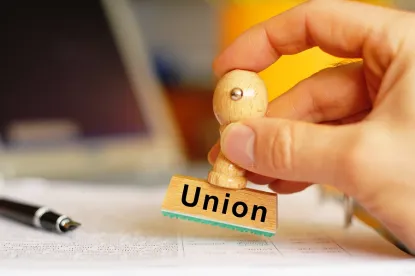Soon after the confirmation and swearing in of NLRB Members Kaplan and Emanuel, who joined outgoing Chairman Philip Miscimarra to give the Board a Republican majority, the NLRB moved quickly to overturn some key cases decided during the Obama administration. The Board has also signaled that it is likely to revisit, and may do away with, additional Obama-era decisions and rules.
Perhaps in anticipation of, or in reaction to, the new Republican-controlled Board, which is expected to be less friendly to unions and employees, some states and cities have moved into areas traditionally under the NLRB’s purview by enacting new laws designed to encourage unionization and employee organizing. Thus far, Seattle and New York City have been the most active in this area of legislation.
These laws, however, have faced significant court challenges resulting in the delayed implementation or invalidation of the laws. For example, in 2015, the city of Seattle passed a law requiring companies that hire or contract with drivers (i.e., Uber and Lyft) to bargain with the drivers if a majority of them show that they wish to be represented by a union, despite the fact that the drivers are independent contractors, not employees. Prior to taking effect, this law was challenged in two separate lawsuits: one filed by the U.S. Chamber of Commerce (“Chamber”) and the other by 11 drivers represented by the National Right to Work Legal Defense Foundation. The primary challenge to the Seattle law is that it flouts federal labor law and attempts to regulate matters reserved by Congress to the federal government, and the Seattle law may violate the federal antitrust laws by, allegedly, price fixing. The federal district court dismissed these suits, and permitted the city of Seattle to move forward with implementation. Shortly thereafter, the Chamber appealed to the U.S. Court of Appeals for the Ninth Circuit, which granted the Chamber’s request that the law be stayed pending the outcome of the appeal. The Ninth Circuit has not yet issued a ruling. In addition to these two cases, Uber also filed a suit just last month challenging the same law in state court, but no ruling has been issued to date.
New York City has made similar efforts that appear to be intended to promote unionization in the car wash and fast-food industries. In June 2015, New York City passed a law that encouraged the unionization of car wash employees by requiring significantly lower bonds for car wash business that are unionized than those that are not. Specifically, as part of the licensing process under the new law, car wash owners with unionized employees were only required to purchase $30,000 in special bonds, while non-unionized car wash owners had to purchase $150,000 in special bonds. These legally required bonds are intended to ensure that the car wash operators pay and reimburse employees properly and also provide healthy working conditions. This law was challenged by the Association of Car Wash Owners, Inc., which argued that the law was preempted by the NLRA and the New York Labor Law and violated the car wash owners’ rights to equal protection and due process under the U.S. Constitution. In March 2017, a federal court struck down this law, finding that it “explicitly encourages unionization, and therefore impermissibly intrudes on the labor-management bargaining process.”
In 2017, New York City enacted another law aimed at promoting worker organizing in the fast-food industry. Specifically, this law permits fast-food employees who want to contribute to nonprofit, non-union workers’ rights groups to direct their employers to deduct contributions from their wages and then forward the deductions to the nonprofits. The law required any nonprofit group receiving contributions as a result of this statute to obtain pledges to contribute from at least 500 workers, and, on January 10, 2018, a nonprofit named Fast Food Justice announced that 1,200 workers pledged to contribute to the organization under this law.
Prior to the law’s implementation, however, the National Restaurant Association filed a lawsuit alleging that the law is preempted by the NLRA and violates the restaurant owners’ First Amendment rights by forcing them to contribute to organizations that they disagree with. This case is currently pending in the U.S. District Court for the Southern District of New York.
In the coming months and years, it is likely that the Board will continue to overturn Obama-era cases, rules, and procedures, especially with regard to worker organizing. In light of this anticipated shift, it is expected that additional cities, and even states, may attempt to legislate in the labor relations space, as well as in the employment law space more broadly. As has been seen from the efforts thus far, it is likely that these laws will meet great resistance from employers and other business interest groups. Employers should continue to monitor their applicable state and local laws and either be prepared to comply with them or consider initiating or participating in a formal challenge to them.



 />i
/>i

